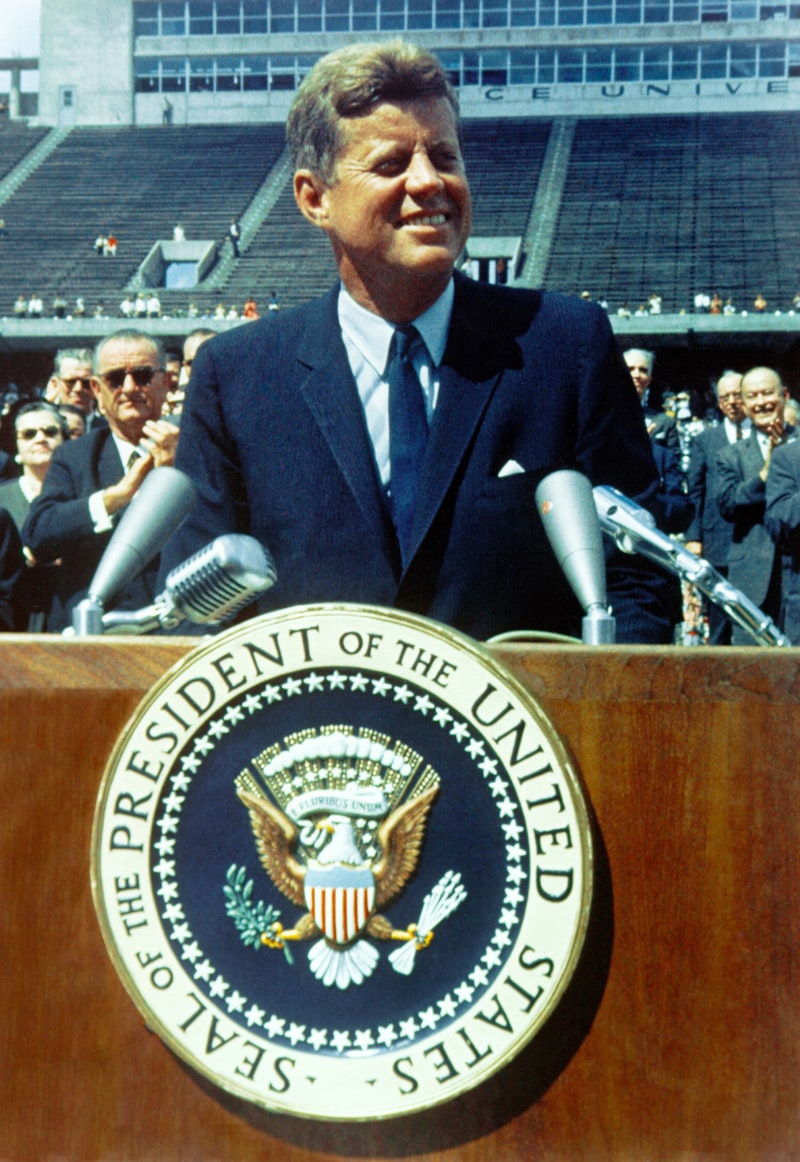Imagine a future where governments control every aspect of life, or where societies are divided into classes based on genetic enhancements. These are the dystopian settings that films like “Blade Runner” and “Gattaca” explore with gripping intensity. They not only dazzle with their futuristic visuals but also delve into the consequences of unchecked political power and societal prejudice.
On the other end of the spectrum are films like “Star Wars” and “Starship Troopers,” where political ideologies clash across galaxies. These epics transport us to worlds where rebellion against oppressive regimes is the norm, echoing real-world struggles for freedom and justice. They inspire us to question authority and fight for what’s right, even in the face of overwhelming odds.
Then there are films like “District 9” and “Children of Men,” which paint bleak portraits of political strife and societal collapse. They shine a spotlight on issues like immigration, authoritarianism, and environmental degradation, forcing us to confront uncomfortable truths about our own world.
In contrast, films such as “The Matrix” and “Snowpiercer” challenge our perceptions of reality and social hierarchy. They use mind-bending narratives and symbolic imagery to explore themes of control, resistance, and the search for individuality in a conformist world.

Whether you’re a fan of action-packed space operas or introspective dystopian dramas, these sci-fi films with political themes offer something for everyone. They blend thrilling storytelling with meaningful social commentary, leaving us entertained, enlightened, and perhaps a bit more aware of the complexities of our political landscape. Ready to embark on a cinematic journey that’s both exhilarating and enlightening? Buckle up and prepare to explore these visionary worlds where politics meets the future.
Revolutionary Realms: 10 Sci-Fi Films Blending Politics and Futuristic Worlds
Imagine a world where governments are replaced by corporations or where artificial intelligence dictates the fate of humanity. These are the themes that resonate in sci-fi films that dare to blend political intrigue with futuristic settings. Take, for instance, “Blade Runner 2049,” a sequel that delves deep into issues of identity, class divide, and the ethics of technology. Set against a dystopian backdrop, it paints a haunting picture of a future where replicants struggle for equality and survival.


Then there’s “Children of Men,” a gripping tale set in a world plagued by infertility and authoritarian regimes. It serves as a stark reminder of the fragility of human existence and the lengths people will go to preserve hope amidst chaos. Similarly, “District 9” explores themes of segregation and xenophobia through its portrayal of extraterrestrial refugees stranded on Earth.
These films not only entertain but also provoke thought, posing questions about power, governance, and the consequences of scientific progress. They challenge viewers to contemplate the ethical dilemmas of the future and reflect on the parallels with our present-day world.
In “Elysium,” the divide between the affluent living in a luxurious space habitat and the impoverished struggling on an overpopulated Earth mirrors contemporary issues of inequality and access to resources. Meanwhile, “Snowpiercer” uses a perpetually moving train as a microcosm of society, where social class determines one’s place in the hierarchy.
Each of these films represents a unique vision of the future, where technology and politics intertwine in ways that both fascinate and unsettle. They remind us that science fiction is not just about escapism but also a powerful tool for exploring the complexities of human nature and society’s potential paths.
As audiences continue to seek out stories that challenge their perceptions and ignite their imaginations, these sci-fi films stand as testament to the genre’s ability to provoke, inspire, and leave a lasting impact on viewers worldwide.
Power Struggles on the Silver Screen: Top Political Themes in Sci-Fi Movies
Imagine a world where political power is not just about physical might, but also about technological supremacy or ideological dominance. Sci-fi movies like “Blade Runner” envision dystopian futures where mega-corporations wield immense influence over society, blurring the lines between government and private interests. Such narratives provoke thought on corporate greed, authoritarianism, and the ethical implications of unchecked power.
In contrast, movies like “Star Wars” offer a galactic stage where rebellions fight against oppressive regimes, echoing historical struggles for freedom and democracy. Themes of resistance, revolution, and the moral ambiguity of war resonate deeply, reflecting our ongoing quest for justice and liberty.
Sci-fi also explores speculative political systems, from utopian societies to nightmarish dictatorships. Films like “The Matrix” delve into themes of virtual reality and the illusion of choice, questioning the nature of governance and individual autonomy. They challenge viewers to ponder the consequences of living under surveillance states or facing existential threats to humanity.
Moreover, movies like “District 9” tackle themes of segregation, xenophobia, and social inequality through the lens of extraterrestrial beings, highlighting how fear and prejudice can shape political landscapes. These narratives serve as allegories for real-world issues, urging audiences to confront their own beliefs and societal norms.
Sci-fi movies transcend mere entertainment by engaging audiences in profound reflections on power, politics, and human nature. They ignite conversations about the complexities of governance, the fragility of freedom, and the pursuit of a just society. Through their imaginative storytelling and thought-provoking themes, these films continue to captivate audiences and inspire contemplation about the future of our own world.
Future Politics Unveiled: Must-Watch Sci-Fi Films Exploring Social Governance
One such cinematic masterpiece is “Blade Runner 2049,” a sequel to the iconic original. Set in a bleak future where artificial intelligence and bioengineering have reshaped humanity, the film explores themes of identity and autonomy amidst a backdrop of political intrigue. As we follow Officer K through neon-lit streets and desolate landscapes, we’re forced to question the ethical implications of advanced technology and its role in shaping governance.
In contrast, “Elysium” presents a chilling depiction of class division taken to the extreme. In this dystopian society, the wealthy elite live in a luxurious space habitat while the rest struggle to survive on an overpopulated and polluted Earth. Through Matt Damon’s character, Max, we witness a desperate struggle for equality and justice, highlighting the consequences of unchecked political power and social inequality.
On a more philosophical note, “The Matrix” trilogy challenges our understanding of reality and control. As Neo discovers the true nature of his existence within a simulated world, we’re drawn into a narrative that explores the boundaries of free will and the manipulation of societal norms. The film serves as a metaphorical reflection on authoritarianism and the quest for individual freedom in an increasingly interconnected world.
In “Snowpiercer,” based on the French graphic novel “Le Transperceneige,” humanity’s last survivors are confined to a perpetually moving train following a global catastrophe. Here, the train becomes a microcosm of society with its strict class hierarchy and political tensions. Director Bong Joon-ho masterfully crafts a narrative that critiques the pitfalls of authoritarian rule and the resilience of the human spirit against oppressive regimes.
These films aren’t just about escapism—they’re cautionary tales, allegories, and mirrors held up to our own society. They invite us to contemplate the potential trajectories of political systems and social structures, urging us to question the status quo and imagine alternative futures. As we navigate an increasingly complex global landscape, these sci-fi narratives serve as poignant reminders of the power dynamics at play and the enduring quest for a more just and equitable world.
From Dystopia to Democracy: Political Discourse in Sci-Fi Cinema
Science fiction films have long served as a mirror to reflect our fears, hopes, and aspirations about the future of governance and society. From dystopian nightmares where totalitarian regimes oppress humanity to utopian visions where democracy thrives, these films explore a spectrum of political ideologies and systems.
In dystopian narratives like George Orwell’s “1984” or the more recent “The Hunger Games,” political discourse often revolves around control, surveillance, and the suppression of individual freedoms. These films portray governments that wield absolute power, manipulating information and enforcing conformity through fear. They serve as cautionary tales, warning against the dangers of unchecked authority and the erosion of civil liberties.
Conversely, science fiction also offers visions of democratic societies where governance is characterized by transparency, equality, and civic engagement. Films like “Star Trek” envision a future where humanity has transcended its present-day conflicts, embracing diversity and cooperation on a galactic scale. Here, political discourse revolves around diplomacy, ethical decision-making, and the pursuit of common goals for the betterment of all.
The evolution from dystopia to democracy in sci-fi cinema reflects our own societal struggles and aspirations. It prompts viewers to critically examine the systems of power and governance that shape our world today. By presenting contrasting political landscapes, these films encourage audiences to contemplate the consequences of political choices and the importance of defending democratic values.
Science fiction cinema serves as a powerful platform for exploring the spectrum of political discourse—from oppressive dystopias to inclusive democracies. Through compelling narratives and vivid imagery, these films provoke thought, inspire change, and challenge us to envision a future where the principles of democracy prevail over the shadows of dystopia.
Alien Diplomacy and Human Politics: Sci-Fi Films Redefining Governance
Imagine a universe where human leaders sit across from extraterrestrial ambassadors, negotiating treaties that span galaxies. It’s not just fantasy anymore; it’s a narrative that probes deep into our societal structures and challenges our notions of diplomacy. These films often portray aliens not merely as invaders but as complex civilizations with their own systems of governance, laws, and hierarchies. This portrayal forces us to question our preconceptions about “the other” and what it means to coexist in a universe teeming with intelligent life.
In “Star Wars,” the Galactic Senate is a melting pot of different species, each with its own agenda and political maneuverings echoing our own global politics. The franchise doesn’t just entertain; it holds a mirror to our world’s struggles for power, justice, and equality. Meanwhile, “Independence Day” and “Ender’s Game” depict humanity’s resilience and adaptability in the face of intergalactic threats, showcasing how politics and diplomacy can shift in moments of crisis.
Films like “Avatar” delve deeper, exploring themes of colonization and environmental exploitation through the lens of alien civilizations. They remind us of the ethical dilemmas inherent in political decision-making and the consequences of unchecked power.
As viewers, we are not just passive observers but active participants in these thought experiments. We are asked to consider what it means to govern ethically, negotiate effectively, and coexist peacefully with beings whose cultural, social, and technological advancements may far surpass our own.
Beyond Borders: Political Allegories in Sci-Fi Classics
Imagine a distant planet ruled by an authoritarian regime, where resistance fighters battle for freedom against all odds. This isn’t just a tale of aliens and spaceships; it’s a reflection of our own struggles for justice and liberty throughout history. Science fiction classics like George Orwell’s “1984” or Ray Bradbury’s “Fahrenheit 451” paint vivid dystopian futures that serve as cautionary tales about unchecked governmental power and the erosion of individual rights.
In “Star Trek,” the Federation’s mission of peaceful exploration and diplomacy mirrors aspirations for a united global community. It’s a utopian vision where diverse species coexist harmoniously, challenging us to envision a future free from prejudice and conflict. The series boldly tackles issues like discrimination and inequality through its diverse cast of characters and thought-provoking storylines.
Similarly, “The Matrix” franchise delves into themes of control and rebellion, presenting a world where humanity is enslaved by artificial intelligence. This allegory questions our reliance on technology and the potential consequences of a surveillance society, urging viewers to contemplate the balance between progress and ethical boundaries.
Even in lighter fare like “Star Wars,” the struggle between the Rebel Alliance and the oppressive Galactic Empire mirrors historical narratives of resistance against tyranny. It’s a timeless saga of good versus evil, resonating with audiences through its universal themes of heroism, sacrifice, and hope.

These sci-fi classics aren’t just escapism; they’re mirrors that reflect our world back to us, prompting introspection and dialogue about the present and future of humanity. Through imaginative storytelling and allegorical narratives, they challenge us to confront pressing issues and envision a better tomorrow, where the boundaries between fiction and reality blur, and where the power of storytelling can inspire change.
Frequently Asked Questions
What are the defining characteristics of sci-fi films with political themes?
Discover the defining characteristics of sci-fi films with political themes in this concise FAQ. Explore how these movies blend futuristic settings with commentary on real-world political issues, offering unique perspectives on power, governance, and societal structures.
What are some examples of sci-fi films that offer insightful commentary on societal structures and governance?
Explore how sci-fi films like ‘Blade Runner,’ ‘Gattaca,’ and ‘Elysium’ offer thought-provoking insights into societal structures and governance through their futuristic settings and narrative exploration.
Which sci-fi films explore political issues in the most compelling way?
Discover how sci-fi films creatively delve into political themes, offering compelling narratives that provoke thought and exploration of societal issues.
How do directors effectively blend sci-fi elements with political allegories in film?
Learn how directors skillfully combine science fiction elements with political allegories in film to create thought-provoking narratives that resonate with contemporary societal issues.
How do sci-fi films use futuristic settings to address current political issues?
Discover how sci-fi films creatively integrate futuristic environments to explore and comment on present-day political concerns.



